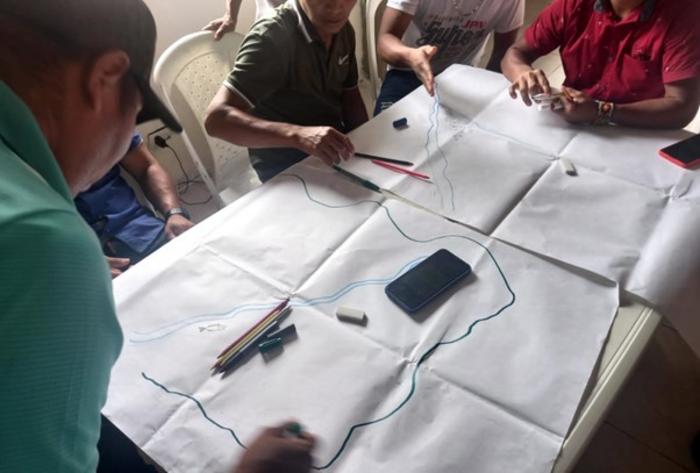A new study highlights the complex interplay between climate change and conflict, showing how these crises compound challenges for vulnerable communities. Researchers emphasize the importance of integrating climate adaptation with peacebuilding efforts, especially in under-researched regions like Southeast Asia and Oceania.
Published in WIRES Climate Change | Estimated reading time: 6 minutes
Understanding the Findings
For decades, researchers have studied the relationship between climate change and conflict, primarily focusing on how environmental changes can spark new violence. However, less attention has been given to regions already experiencing conflict, where climate impacts exacerbate existing vulnerabilities. A new review of 212 studies, led by Ms. Luisa Bedoya Taborda of the University of Sydney, highlights critical gaps in this area and the urgent need for integrated approaches to address overlapping challenges.
Communities in regions such as Myanmar, Papua New Guinea, and the Philippines are facing dual shocks from conflict and climate change. In these areas, climate-driven events like typhoons, floods, droughts, and coastal erosion intensify socio-political tensions and often escalate conflicts. For example, in Myanmar, communities already dealing with political unrest must also contend with severe flooding, displacing families and straining limited resources.
“Our review showed there is a major gap regarding what’s happening in communities that are already affected by conflict,” explained Ms. Bedoya Taborda. “So, these communities are basically alone, trying to face these two significant, compounded shocks.”
The study also pointed out that South America, Oceania, and Southeast Asia are particularly underrepresented in research. Most studies are published in English, which limits perspectives from regions where other languages like Spanish, Portuguese, and Tagalog dominate. This linguistic gap, researchers warn, could have far-reaching consequences for international aid and policy planning.
One example of this gap’s impact is Nepal, where the effects of climate change have hampered peacebuilding efforts following a 10-year civil war. Despite attempts to rebuild communities and improve livelihoods, challenges such as deforestation, food shortages, and water scarcity have persisted. These problems highlight the need for solutions that address both climate resilience and conflict mitigation simultaneously.
“Climate-driven instability in neighboring countries could lead to regional security concerns, migration pressures, and humanitarian crises in Australia,” said Dr. Michele Barnes, a co-author of the study. The researchers stress that failing to address these dual crises could undermine humanitarian efforts and destabilize entire regions.
Ms. Bedoya Taborda, who led the study during her master’s research at James Cook University, noted the complexity of helping communities facing these simultaneous crises. Now pursuing her PhD at the University of Sydney, she hopes to advance strategies that integrate climate adaptation with peacebuilding. “It’s very complicated because we don’t actually know how to help communities facing these simultaneous shocks,” she said. The study calls for interdisciplinary approaches and better representation of local perspectives to design policies that support both climate resilience and lasting peace.
The researchers emphasize the importance of closing these research gaps to better prepare for climate-driven crises in conflict-affected regions. By designing integrated solutions, policymakers and aid organizations can help build more resilient and peaceful communities.
Glossary
- Climate Adaptation: Strategies to minimize the adverse effects of climate change on communities and ecosystems.
- Peacebuilding: Efforts to create sustainable peace in post-conflict areas by addressing root causes of violence.
- Socio-political Tensions: Conflicts or unrest arising from social, economic, or political disagreements within a community.
- Deforestation: The removal of large areas of forest, often resulting in environmental and social challenges.
- Systematic Review: A research method that collects and analyzes multiple studies to answer specific questions.
Quiz
What is the focus of the study?
Answer: The interaction between climate change and conflict in vulnerable communities.
Which regions were identified as under-researched?
Answer: South America, Oceania, and Southeast Asia.
What does peacebuilding aim to achieve?
Answer: Sustainable peace in post-conflict areas by addressing root causes of violence.
Where was the study published?
Answer: WIRES Climate Change.
Enjoy this story? Subscribe to our newsletter at scienceblog.substack.com


